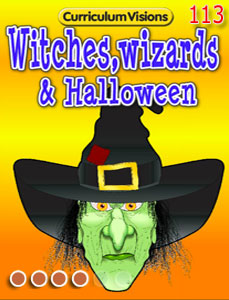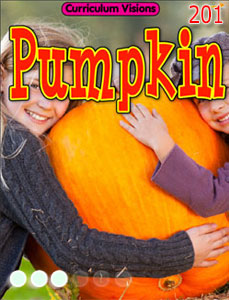Halloween is nothing to do with witches and wizards – or is it? People certainly wear witches gear for Halloween today.
Going back in time, Halloween probably came from the Celtic festival of Samuin (pronounced something like sow-in), which means the festival of Summer's End. It was on November 1st.
Summer's end was important because it was like a sort of Harvest Festival where people were very relieved to have got in and stored enough food to take them through the harsh winter ahead.
The celebration was marked by feasts, the wearing of costumes made of animal skins, and they made ceremonial bonfires. At this time they all lived in small houses with no windows, so the fire was the only light. Then everyone let their fires go out. At the end all the fires were relit for the next year with embers from the ceremonial bonfire.
The word Halloween comes from Anglo-Saxon English. It was Alholowmesse. Messe means celebration. In church that word is now changed to 'mass'. So Halloween was the eve (evening) before Hallowmas. Hence 'Hallowmass Evening' became shortened to 'Hallow evening' and then 'Hallow'een'.
Halloween was probably adopted by the early church and so is now connected to the Christian church feast day of November the 1st called Hallowmas and which is now known as All Saints Day. It celebrates all of the saints who have gone to Heaven. The next day is All Souls Day when people pray for the souls of those who have not yet reached Heaven.
It was celebrated similarly to Samuin, with big bonfires, parades, and dressing up in costumes as saints, angels, and devils.






